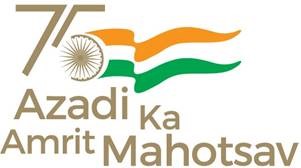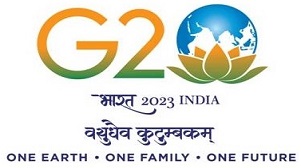This announcement outlines the engagement of a Consultant (Engraver) on a fixed tenure contract basis. It provides a comprehensive overview of the role, responsibilities, eligibility criteria, contractual terms, selection process including a walk-in-interview scheduled for 30 July 2025, and other administrative and legal provisions. The goal is to attract qualified engravers with the technical skill, artistic sensibility, and professional conduct necessary to support institutional needs in engraving, die-sinking, laser/rotary engraving, and related metalwork or stonework tasks.
Introduction
Institutions and organizations periodically require specialized artisanal and technical services that are not part of their permanent workforce. Engraving is a niche skill that combines craftsmanship, precision, and often familiarity with modern technologies such as Computer Numerical Control (CNC), laser engraving, and design software. To meet short- to medium-term project needs, organizations frequently engage consultants on a fixed tenure contract basis.
This blog post provides a detailed template-style guide and announcement for recruiting a Consultant (Engraver) on contract. It is written to help hiring managers prepare a clear recruitment notice, set fair selection criteria, and ensure compliance with procedural requirements, while also informing prospective candidates about expectations and how to apply.
Role Overview
Purpose of Engagement
- Primary objective: To engage a skilled engraver on a time-bound contract who will carry out engraving tasks across materials (metal, wood, stone, plastic, etc.), maintain equipment, and support design and production workflows.
- Context: Short-term project support, seasonal workloads, backlog clearance, prototype production, or specialized commissions.
Key Responsibilities
- Engraving Operations: Perform hand engraving, machine engraving (CNC/rotary), laser engraving, and etching as required.
- Design and Pre-Production: Translate drawings, CAD files, and design briefs into engraving-ready formats; prepare templates and jigs.
- Machine Set-up and Maintenance: Operate and maintain engraving equipment; perform routine checks and report malfunctions.
- Quality Assurance: Ensure finishes meet specified tolerances, aesthetic standards, and project requirements.
- Material Handling: Select appropriate tooling and consumables; handle delicate and valuable materials safely.
- Documentation and Reporting: Maintain work logs, record time and materials used, attend progress meetings, and submit completion reports.
- Compliance and Safety: Follow institutional safety protocols and statutory regulations related to occupational health and environmental safety.
- Knowledge Transfer: Provide on-the-job guidance to junior staff when required.
Eligibility Criteria and Qualifications
Essential Qualifications
- Formal qualification in Fine Arts, Metalwork, Sculpture, Industrial Training, or a related vocational/technical certificate OR a minimum of 3–5 years’ demonstrable experience in professional engraving.
- Proficiency in one or more modern engraving technologies (e.g., laser engraving, CNC engraving).
- Portfolio demonstrating range of engraving work (hand, machine, and/or laser), showing precision, creativity, and material diversity.
Desirable Skills and Experience
- Experience working with CAD software (e.g., AutoCAD, Adobe Illustrator, CorelDRAW) and CAM software for engraving.
- Familiarity with die-sinking, chemical etching, and finishing processes (anodizing, plating, lacquering).
- Knowledge of metallurgy and materials science relevant to engraving.
- Prior experience in institutional or industrial settings, delivering work within strict timelines.
- Basic health & safety certifications, or willingness to undergo training.
Behavioral Competencies
- Attention to detail and high standards of workmanship.
- Reliability, punctuality, and capacity to work independently.
- Good communication skills and ability to follow technical instructions.
- Professionalism when interacting with clients, suppliers, and colleagues.
Contractual Terms and Conditions
Tenure and Nature of Engagement
- Type: Fixed tenure contract (consultancy) for a specific period—commonly 6 months to 2 years depending on project needs.
- Start Date: As specified in the appointment letter or as negotiated; prompt joining is usually expected after selection.
- Renewal: Contract renewal is subject to performance review, availability of funds, and organizational requirements. Renewal is not automatic.
Remuneration and Benefits
- Remuneration: Consolidated monthly fee/remuneration—negotiable based on experience and skill level. Fee will be inclusive of all statutory and non-statutory allowances unless otherwise stated.
- Travel/Local Allowances: Reimbursement for official travel as per applicable rules or a fixed travel allowance may be provided.
- No Entitlement to Regular Employment Benefits: Consultants typically do not qualify for pension, gratuity, or other benefits provided to permanent employees unless expressly mentioned.
- Taxes: Income tax and other statutory deductions will be as per the prevailing laws.
Working Hours and Leaves
- Working Hours: As per institutional norms, typically 40–48 hours per week; flexibility may be required to meet project deadlines.
- Leaves: Leave entitlement and approval process will be detailed in the contract; unused leave is ordinarily not encashed except under specific circumstances at the time of contract termination.
Termination
- Termination by Employer: For reasons including poor performance, misconduct, or organizational constraints—notice period as specified in the contract (e.g., 30 days).
- Termination by Consultant: Consultant may terminate by providing the agreed notice.
- Immediate Termination: For gross misconduct, breach of confidentiality, or serious health/safety violations.
Intellectual Property and Confidentiality
- IP Rights: Work created during the tenure will generally be the property of the organization unless otherwise specified. Consultants should be clear about rights to designs, templates, and derivative works.
- Confidentiality: Consultants must sign a confidentiality agreement covering sensitive information, proprietary designs, and institutional data.
Walk-in-Interview Details
- Date: 30 July 2025 (Walk-in-interview)
- Reporting Time: Candidates should check the official notification for reporting timings (commonly between 09:00 and 11:00 AM) and document verification window.
- Venue: Specified office/department premises (to be announced in the formal advertisement).
- Documents to Bring:
- Original and photocopies of educational certificates and vocational/technical qualifications.
- Proof of identity (e.g., passport, national ID, driver’s license).
- Experience certificates and references from previous employers/clients.
- Portfolio of work (physical samples and/or a digital portfolio on a USB drive or accessible through a link).
- Recent passport-sized photographs and completed application form (if applicable).
- Any other documents specified in the official advertisement.
- Selection Stages:
- Document verification and portfolio review.
- Practical skill assessment (live test on engraving or submission of work samples).
- Interview (technical and HR) assessing competency, approach, and fit.
Selection Process and Evaluation Criteria
- Shortlisting: Based on qualifications, experience, and quality of portfolio.
- Practical Test: Candidates may be asked to perform a short engraving task under supervised conditions to assess technique, speed, and finish quality.
- Interview: Panel interview evaluating technical knowledge, problem-solving, communication, and understanding of safety and quality norms.
- Scoring Matrix (suggested):
- Qualifications and relevant experience: 30%
- Portfolio quality and diversity: 25%
- Practical test performance: 25%
- Interview and behavioral fit: 15%
- References and past performance: 5%
- Final Selection: Candidates will be ranked and selected based on total scores, subject to document verification and medical fitness (if required).
Practical Test — Suggested Guidelines
- Objective: To evaluate manual dexterity, precision, tool handling, and ability to follow a technical brief.
- Format:
- A short engraving assignment on a standard piece (e.g., brass/steel plate, wood or acrylic).
- Time-limited (e.g., 1–3 hours depending on complexity).
- Evaluation criteria: accuracy to the brief, finish quality, tool control, adherence to safety protocols, creativity where applicable.
- Resources Provided: Tools, sample material, basic templates or artwork; candidates may be asked to bring their own specialized tools if needed and permitted.
Application and Contact Information
- How to Apply:
- Candidates should attend the walk-in-interview on the specified date with original documents and copies.
- Some organizations may provide an online pre-registration system—check the official notification for details.
- Contact:
- Official departmental contact details will be listed in the formal advertisement (email, phone, office address).
- Candidates with queries about the role, test format, or documentation should contact the designated official.
Legal, Ethical and Administrative Considerations
- Equal Opportunity: Engagement should follow non-discriminatory practices, ensuring equal opportunity irrespective of gender, religion, caste, or disability—subject to the candidate meeting the technical requirements of the role.
- Medical Fitness: The organization may require a medical fitness certificate prior to final appointment.
- Background Verification: Prior to onboarding, the institution may undertake background and reference checks.
- Compliance: Engagement will comply with applicable labor laws and statutory rules governing contractual appointments.
Onboarding and First 30–90 Days Expectations
- Orientation: Briefing on institutional protocols, safety procedures, and project specifics.
- Workstation Setup: Allocation of equipment, safety gear, and access to necessary software and materials.
- Project Assignment: Initial small-scale tasks to assess integration with existing teams and workflows.
- Performance Review: Formal review at 30 or 90 days to assess suitability and discuss contract continuation or improvement measures.
Performance Management
- KPIs: Typical performance indicators include output quality (defect rates), turnaround time, adherence to specifications, safety compliance, and teamwork.
- Feedback: Periodic feedback sessions with a supervising officer to facilitate continuous improvement.
- Termination for Underperformance: Persistent failure to meet agreed KPIs can lead to contract termination following due process.
Advantages of Hiring on Fixed Tenure Contract
- Flexibility: Tailored engagement to match project timelines and workload peaks.
- Cost-Control: Predictable consolidated remuneration without long-term obligations.
- Specialized Skills Access: Ability to bring in niche expertise for targeted tasks.
- Quick Mobilization: Faster onboarding than permanent recruitment processes.
Potential Challenges and Mitigation
- Knowledge Continuity: Consultants may depart with tacit knowledge; mitigate by documenting processes and facilitating knowledge transfer.
- Integration: Temporary staff may face cultural or workflow integration issues; assign a mentor and set clear expectations.
- Quality Consistency: Ensure clear specifications, approve sample work before larger runs, and maintain inspection protocols.
- IP Concerns: Ensure contracts explicitly address intellectual property and confidentiality.
Frequently Asked Questions (FAQ)
- Q: Is this a permanent role?
A: No. The role is for a fixed tenure contract and does not confer permanent employment rights. - Q: Can the contract be renewed?
A: Contract renewal depends on performance, funds, and institutional requirements and is not guaranteed. - Q: Will I be paid hourly or monthly?
A: Typically a consolidated monthly fee is paid, but the specific arrangement will be spelled out in the contract. - Q: Are assistants or apprentices provided?
A: Depends on institutional resources and project scale. The consultant may be expected to mentor junior staff if required. - Q: Can I use my own tools?
A: Some organizations may allow this with prior permission; otherwise, standard tools and consumables will be provided.
Tips for Candidates
- Prepare a concise but strong portfolio—include high-resolution images, close-ups, and brief notes on materials, tools, and techniques used.
- Practice a few standard engraving tasks before the practical test—focus on precision, consistency, and finish.
- Bring your own small set of essential tools if allowed and comfortable doing so; check the official notice for permitted items.
- Carry valid identification and organized documents to simplify verification.
- Be ready to discuss past projects, problem-solving instances, and how you ensured quality and timeliness.
Conclusion
Engaging a Consultant (Engraver) on a fixed tenure contract basis is an effective approach for institutions that require specialized, time-bound engraving expertise. A well-structured recruitment notice, clear selection criteria, a practical skills assessment, and robust contractual safeguards ensure that both the organization and the consultant benefit from the engagement. Prospective candidates are encouraged to attend the walk-in-interview scheduled for 30 July 2025, bringing comprehensive documentation and a polished portfolio to demonstrate their fit for this specialized role.


